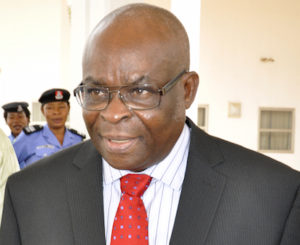The recent decision of the Code of Conduct Bureau to arraign the Chief Justice of Nigeria, Justice Walter Onnoghen, over allegations of non-declaration of assets has continued to draw criticism from many quarters.

Vanguard reports that the Christian Lawyers’ Fellowship of Nigeria (CLASFON) has joined in condemning the Bureau’s action describing it as unconstitutional and an abuse of power by the executive arm of government.
The Christian group made its position known in a statement signed by its National President, Arome Okwori and National Secretary, Olatunji Omole in Jos on Monday. The group prayed the charges against the CJN be dropped and warned that proceeding with the arraignment will amount to the usurpation of powers of the National Judicial Council (NJC).
The statement read in part, “We received with dismay the disturbing news of the decision of the Code of Conduct Bureau, CCB, an agency of the Federal government, to arraign before the Code of Conduct Tribunal, CCT, the Chief Justice of Nigeria, Justice Walter Onnoghen, for alleged breaches of the Code of Conduct as contained in the constitution.
“It is the view of CLASFON that the decision of the executive arm of government through its agency, CCB is misconceived, unconstitutional and a naked display of arbitrary powers.
“Government action undermines the principle of the rule of law and the doctrine of separation of powers, which are fundamental principles of the constitution.
“The provisions of Section 153 to 161 of the 1999 Constitution, the Third Schedule to the constitution, the National Judicial Policy of April 2016, the Judicial Discipline Regulations of March 9, 2017, the Revised Code of Conduct of Judicial Officers of February 2016, made by the National Judicial Council pursuant to its constitutional powers and the decision of the Court of Appeal in Nganjiwa v. Federal Republic of Nigeria (2017) LPELR-43391 sum up the extant law on the procedure for dealing with cases of misconduct by serving judicial officers.
“The Chief Justice of Nigeria as a judicial officer and a member of the National Judicial Council is amenable to the disciplinary control of the National Judicial Council. (Paragraph 21(b) and (g) of the Third Schedule to the 1999 Nigerian Constitution.
“From the foregoing, we consider the NJC as the appropriate organ to deal with complaints of misconduct brought against the Chief Justice of Nigeria in the first instance.”







Leave a Reply